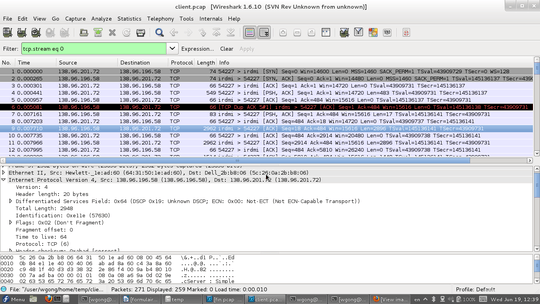2
2
I have two computers A and B, there is a TCP connection between them. I use TCPdump to capture the packets.
I notice that when A sends a lot of TCP packets to B, each IP packets are 1514 bytes.
In B, it receives IP packets of size 2962. Then I checked the IPID. For example, if A sends 4 TCP packets with IPID, 1000, 1001, 1002, 1003, each of which are 1514 bytes. Then B only gets only 2 TCP packets with IPID 1000, 1002, each of which are 2962 bytes.
Does this mean LAN will assembly 2 IP packets into 1 IP packets? How is this happening? Which device does the assembly?

Can you include a screenshot proving an IP packet of 2962? I don't recall precisely but that may not even be possible unless perhaps if one is including the data/payload. – barlop – 2013-06-19T09:53:39.557
yes, see updates – misteryes – 2013-06-19T10:40:50.127
It could be if it was a jumbo frame, but that usually requires end to end support... – NickW – 2013-06-19T10:42:23.207